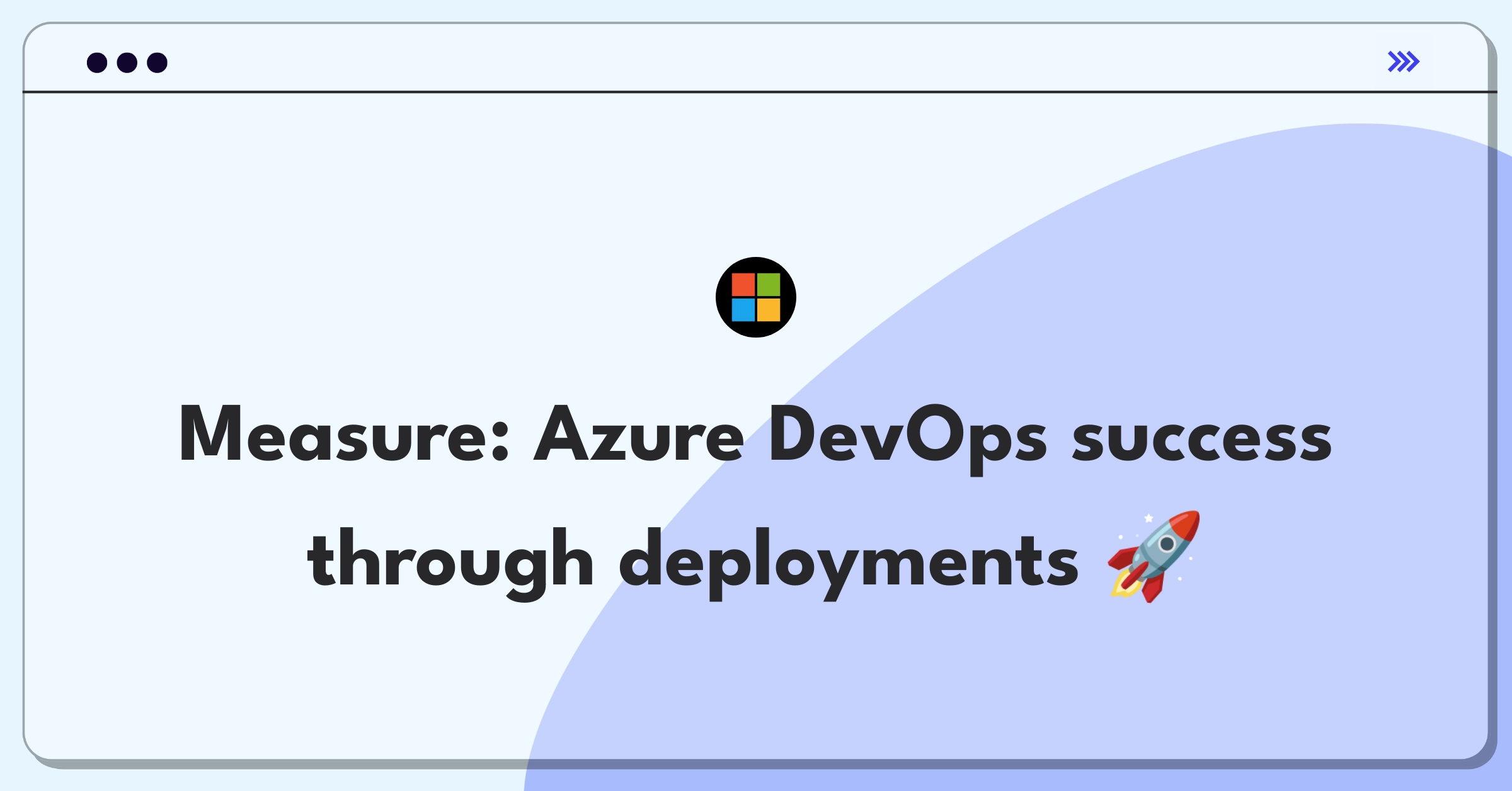Introduction
Defining the success of Microsoft's Azure DevOps platform requires a comprehensive approach that considers multiple stakeholders and metrics. To tackle this product success metrics challenge, I'll follow a structured framework covering core metrics, supporting indicators, and risk factors while considering all key stakeholders.
Framework Overview
I'll follow a simple success metrics framework covering product context, success metrics hierarchy.
Step 1
Product Context
Azure DevOps is Microsoft's end-to-end DevOps solution that enables teams to plan, develop, test, and deliver software more efficiently. It's a suite of services that includes Azure Boards for work item tracking, Azure Repos for version control, Azure Pipelines for CI/CD, Azure Test Plans for testing, and Azure Artifacts for package management.
Key stakeholders include:
- Development teams: Seeking to streamline their workflow and improve productivity
- Project managers: Looking for better visibility and control over projects
- Operations teams: Aiming to reduce deployment friction and improve reliability
- Business leaders: Focused on faster time-to-market and ROI
User flow typically involves:
- Planning: Teams use Azure Boards to create and manage work items, sprints, and backlogs.
- Development: Developers use Azure Repos for version control and code collaboration.
- Build and Test: Azure Pipelines automates build, test, and deployment processes.
- Deployment: Continuous delivery to various environments is managed through Azure Pipelines.
- Monitoring: Teams use Azure Monitor and Application Insights for post-deployment monitoring.
Azure DevOps fits into Microsoft's broader strategy of providing comprehensive cloud solutions and fostering a developer-friendly ecosystem. It competes with platforms like GitLab, Atlassian's Jira + Bitbucket, and GitHub (now owned by Microsoft), offering tighter integration with other Microsoft services.
In terms of product lifecycle, Azure DevOps is in the growth stage, continuously evolving with new features and integrations to meet the changing needs of modern software development practices.
Software-specific context:
- Platform: Cloud-based SaaS with on-premises options available
- Integration: Extensive API support and marketplace for third-party integrations
- Deployment: Fully managed service with regular updates and new feature releases
Subscribe to access the full answer
Monthly Plan
The perfect plan for PMs who are in the final leg of their interview preparation
$99 /month
- Access to 8,000+ PM Questions
- 10 AI resume reviews credits
- Access to company guides
- Basic email support
- Access to community Q&A
Yearly Plan
The ultimate plan for aspiring PMs, SPMs and those preparing for big-tech
$99 $33 /month
- Everything in monthly plan
- Priority queue for AI resume review
- Monthly/Weekly newsletters
- Access to premium features
- Priority response to requested question


.png)